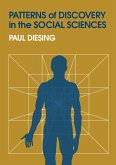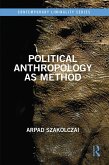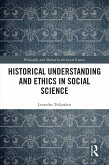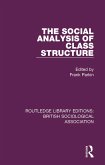0,00 €
0,00 €
inkl. MwSt.
Sofort per Download lieferbar

0 °P sammeln
0,00 €
Als Download kaufen

0,00 €
inkl. MwSt.
Sofort per Download lieferbar

0 °P sammeln
Jetzt verschenken
Alle Infos zum eBook verschenken
0,00 €
inkl. MwSt.
Sofort per Download lieferbar
Alle Infos zum eBook verschenken

0 °P sammeln
- Format: ePub
- Merkliste
- Auf die Merkliste
- Bewerten Bewerten
- Teilen
- Produkt teilen
- Produkterinnerung
- Produkterinnerung

Bitte loggen Sie sich zunächst in Ihr Kundenkonto ein oder registrieren Sie sich bei
bücher.de, um das eBook-Abo tolino select nutzen zu können.
Hier können Sie sich einloggen
Hier können Sie sich einloggen
Sie sind bereits eingeloggt. Klicken Sie auf 2. tolino select Abo, um fortzufahren.

Bitte loggen Sie sich zunächst in Ihr Kundenkonto ein oder registrieren Sie sich bei bücher.de, um das eBook-Abo tolino select nutzen zu können.
Through case studies in sociology, economics and legal studies, this book advances new philosophical foundations for the methods of the social sciences, providing an account of how to establish or evaluate causal claims, and offering a new way of thinking about evidence-based policy, basic social science research and mixed methods research.
- Geräte: eReader
- ohne Kopierschutz
- eBook Hilfe
- Größe: 1.96MB
Andere Kunden interessierten sich auch für
![Evidential Pluralism in the Social Sciences (eBook, PDF) Evidential Pluralism in the Social Sciences (eBook, PDF)]() Yafeng ShanEvidential Pluralism in the Social Sciences (eBook, PDF)0,00 €
Yafeng ShanEvidential Pluralism in the Social Sciences (eBook, PDF)0,00 €![Bourdieu's Philosophy and Sociology of Science (eBook, ePUB) Bourdieu's Philosophy and Sociology of Science (eBook, ePUB)]() Kyung-Man KimBourdieu's Philosophy and Sociology of Science (eBook, ePUB)42,95 €
Kyung-Man KimBourdieu's Philosophy and Sociology of Science (eBook, ePUB)42,95 €![Patterns of Discovery in the Social Sciences (eBook, ePUB) Patterns of Discovery in the Social Sciences (eBook, ePUB)]() Paul DiesingPatterns of Discovery in the Social Sciences (eBook, ePUB)53,95 €
Paul DiesingPatterns of Discovery in the Social Sciences (eBook, ePUB)53,95 €![Political Anthropology as Method (eBook, ePUB) Political Anthropology as Method (eBook, ePUB)]() Arpad SzakolczaiPolitical Anthropology as Method (eBook, ePUB)37,95 €
Arpad SzakolczaiPolitical Anthropology as Method (eBook, ePUB)37,95 €![Historical Understanding and Ethics in Social Science (eBook, ePUB) Historical Understanding and Ethics in Social Science (eBook, ePUB)]() Leonidas TsilipakosHistorical Understanding and Ethics in Social Science (eBook, ePUB)42,95 €
Leonidas TsilipakosHistorical Understanding and Ethics in Social Science (eBook, ePUB)42,95 €![The Foundations of Research (eBook, ePUB) The Foundations of Research (eBook, ePUB)]() Jonathan GrixThe Foundations of Research (eBook, ePUB)25,95 €
Jonathan GrixThe Foundations of Research (eBook, ePUB)25,95 €![The Social Analysis of Class Structure (eBook, ePUB) The Social Analysis of Class Structure (eBook, ePUB)]() Frank ParkinThe Social Analysis of Class Structure (eBook, ePUB)34,95 €
Frank ParkinThe Social Analysis of Class Structure (eBook, ePUB)34,95 €-
-
-
Through case studies in sociology, economics and legal studies, this book advances new philosophical foundations for the methods of the social sciences, providing an account of how to establish or evaluate causal claims, and offering a new way of thinking about evidence-based policy, basic social science research and mixed methods research.
Dieser Download kann aus rechtlichen Gründen nur mit Rechnungsadresse in A, B, BG, CY, CZ, D, DK, EW, E, FIN, F, GR, HR, H, IRL, I, LT, L, LR, M, NL, PL, P, R, S, SLO, SK ausgeliefert werden.
Produktdetails
- Produktdetails
- Verlag: Taylor & Francis eBooks
- Seitenzahl: 190
- Erscheinungstermin: 24. April 2023
- Englisch
- ISBN-13: 9781000890396
- Artikelnr.: 67794439
- Verlag: Taylor & Francis eBooks
- Seitenzahl: 190
- Erscheinungstermin: 24. April 2023
- Englisch
- ISBN-13: 9781000890396
- Artikelnr.: 67794439
- Herstellerkennzeichnung Die Herstellerinformationen sind derzeit nicht verfügbar.
Yafeng Shan is Assistant Professor of Philosophy of Science at the Hong Kong University of Science and Technology. He is the author of Doing Integrated History and Philosophy of Science: A Case Study of the Origin of Genetics and the editor of New Philosophical Perspectives on Scientific Progress.
Jon Williamson is Professor of Reasoning, Inference, and Scientific Method at the University of Kent, UK. His books include Evaluating Evidence of Mechanisms in Medicine, Lectures on Inductive Logic, Probabilistic Logics and Probabilistic Networks, In Defence of Objective Bayesianism and Bayesian Nets and Causality.
Jon Williamson is Professor of Reasoning, Inference, and Scientific Method at the University of Kent, UK. His books include Evaluating Evidence of Mechanisms in Medicine, Lectures on Inductive Logic, Probabilistic Logics and Probabilistic Networks, In Defence of Objective Bayesianism and Bayesian Nets and Causality.
I Philosophical Framework
1 Evidential Pluralism
§1. What is Evidential Pluralism?
§2. Why is Evidential Pluralism Plausible?
§3. Evidential Pluralism and EBM+
§4. Controversies and Clarifications
§5. Evidential Pluralism and Epistemic Causality
§6. Applying Evidential Pluralism to the Social Sciences
2 Historical Roots
§7. Bernard
§8. Weldon
§9. Goldthorpe
§10. How does Evidential Pluralism differ?
II Consequences and Concerns
3 Evidence-Based Policy: EBP+
§11. EBM and EBP
§12. EBP+ Evaluation Procedures
§13. EBP+ in Comparison to Existing Approaches
4 Mixed Methods Research
§14. The Context of the Origins of Mixed Methods Research
§15. Mixed Methods Research and its Philosophical Foundations
§16. A Critical Analysis
§17. Evidential Pluralism and Mixed Methods Research
5 Objections and Responses
§18. Objection 1: The Problem of Sufficiency
§19. Objection 2: The Problem of Necessity
§20. Objection 3: The Problem of Causal Monism
§21. Objection 4: The Problem of Defining Mechanisms
III Particular Social Sciences
6 Sociology
§22. Causal Enquiry in Sociology
§23. Sociologists' Methodological Reflections on Causal Enquiry
7 Economics
§24. Causal Enquiry in Economics
§25. Benefits of Evidential Pluralism in Economics
§26. Mechanisms and Theory in Economics
§27. Causal and Methodological Pluralism in Economics
8 Political Science
§28. The Need for Methodological Diversity in Political Science
§29. Case Study: Resource Wealth and Violence in Rebellions
§30. Understanding Causal Enquiry in Political Science
9 Law
§31. The Bifurcation Approach to Causation in the Law
§32. The Bifurcation Approach and Evidential Pluralism
§33. Liability-Tracing Mechanisms
§34. Against Causal Autonomy in the Law
10 The Scope of Evidential Pluralism in the Social Sciences
§35. Across the social sciences
§36. Where we stand
Bibliography
1 Evidential Pluralism
§1. What is Evidential Pluralism?
§2. Why is Evidential Pluralism Plausible?
§3. Evidential Pluralism and EBM+
§4. Controversies and Clarifications
§5. Evidential Pluralism and Epistemic Causality
§6. Applying Evidential Pluralism to the Social Sciences
2 Historical Roots
§7. Bernard
§8. Weldon
§9. Goldthorpe
§10. How does Evidential Pluralism differ?
II Consequences and Concerns
3 Evidence-Based Policy: EBP+
§11. EBM and EBP
§12. EBP+ Evaluation Procedures
§13. EBP+ in Comparison to Existing Approaches
4 Mixed Methods Research
§14. The Context of the Origins of Mixed Methods Research
§15. Mixed Methods Research and its Philosophical Foundations
§16. A Critical Analysis
§17. Evidential Pluralism and Mixed Methods Research
5 Objections and Responses
§18. Objection 1: The Problem of Sufficiency
§19. Objection 2: The Problem of Necessity
§20. Objection 3: The Problem of Causal Monism
§21. Objection 4: The Problem of Defining Mechanisms
III Particular Social Sciences
6 Sociology
§22. Causal Enquiry in Sociology
§23. Sociologists' Methodological Reflections on Causal Enquiry
7 Economics
§24. Causal Enquiry in Economics
§25. Benefits of Evidential Pluralism in Economics
§26. Mechanisms and Theory in Economics
§27. Causal and Methodological Pluralism in Economics
8 Political Science
§28. The Need for Methodological Diversity in Political Science
§29. Case Study: Resource Wealth and Violence in Rebellions
§30. Understanding Causal Enquiry in Political Science
9 Law
§31. The Bifurcation Approach to Causation in the Law
§32. The Bifurcation Approach and Evidential Pluralism
§33. Liability-Tracing Mechanisms
§34. Against Causal Autonomy in the Law
10 The Scope of Evidential Pluralism in the Social Sciences
§35. Across the social sciences
§36. Where we stand
Bibliography
I Philosophical Framework
1 Evidential Pluralism
1. What is Evidential Pluralism?
2. Why is Evidential Pluralism Plausible?
3. Evidential Pluralism and EBM+
4. Controversies and Clarifications
5. Evidential Pluralism and Epistemic Causality
6. Applying Evidential Pluralism to the Social Sciences
2 Historical Roots
7. Bernard
8. Weldon
9. Goldthorpe
10. How does Evidential Pluralism differ?
II Consequences and Concerns
3 Evidence-Based Policy: EBP+
11. EBM and EBP
12. EBP+ Evaluation Procedures
13. EBP+ in Comparison to Existing Approaches
4 Mixed Methods Research
14. The Context of the Origins of Mixed Methods Research
15. Mixed Methods Research and its Philosophical Foundations
16. A Critical Analysis
17. Evidential Pluralism and Mixed Methods Research
5 Objections and Responses
18. Objection 1: The Problem of Sufficiency
19. Objection 2: The Problem of Necessity
20. Objection 3: The Problem of Causal Monism
21. Objection 4: The Problem of Defining Mechanisms
III Particular Social Sciences
6 Sociology
22. Causal Enquiry in Sociology
23. Sociologists' Methodological Reflections on Causal Enquiry
7 Economics
24. Causal Enquiry in Economics
25. Benefits of Evidential Pluralism in Economics
26. Mechanisms and Theory in Economics
27. Causal and Methodological Pluralism in Economics
8 Political Science
28. The Need for Methodological Diversity in Political Science
29. Case Study: Resource Wealth and Violence in Rebellions
30. Understanding Causal Enquiry in Political Science
9 Law
31. The Bifurcation Approach to Causation in the Law
32. The Bifurcation Approach and Evidential Pluralism
33. Liability-Tracing Mechanisms
34. Against Causal Autonomy in the Law
10 The Scope of Evidential Pluralism in the Social Sciences
35. Across the social sciences
36. Where we stand
Bibliography
1 Evidential Pluralism
1. What is Evidential Pluralism?
2. Why is Evidential Pluralism Plausible?
3. Evidential Pluralism and EBM+
4. Controversies and Clarifications
5. Evidential Pluralism and Epistemic Causality
6. Applying Evidential Pluralism to the Social Sciences
2 Historical Roots
7. Bernard
8. Weldon
9. Goldthorpe
10. How does Evidential Pluralism differ?
II Consequences and Concerns
3 Evidence-Based Policy: EBP+
11. EBM and EBP
12. EBP+ Evaluation Procedures
13. EBP+ in Comparison to Existing Approaches
4 Mixed Methods Research
14. The Context of the Origins of Mixed Methods Research
15. Mixed Methods Research and its Philosophical Foundations
16. A Critical Analysis
17. Evidential Pluralism and Mixed Methods Research
5 Objections and Responses
18. Objection 1: The Problem of Sufficiency
19. Objection 2: The Problem of Necessity
20. Objection 3: The Problem of Causal Monism
21. Objection 4: The Problem of Defining Mechanisms
III Particular Social Sciences
6 Sociology
22. Causal Enquiry in Sociology
23. Sociologists' Methodological Reflections on Causal Enquiry
7 Economics
24. Causal Enquiry in Economics
25. Benefits of Evidential Pluralism in Economics
26. Mechanisms and Theory in Economics
27. Causal and Methodological Pluralism in Economics
8 Political Science
28. The Need for Methodological Diversity in Political Science
29. Case Study: Resource Wealth and Violence in Rebellions
30. Understanding Causal Enquiry in Political Science
9 Law
31. The Bifurcation Approach to Causation in the Law
32. The Bifurcation Approach and Evidential Pluralism
33. Liability-Tracing Mechanisms
34. Against Causal Autonomy in the Law
10 The Scope of Evidential Pluralism in the Social Sciences
35. Across the social sciences
36. Where we stand
Bibliography
I Philosophical Framework
1 Evidential Pluralism
§1. What is Evidential Pluralism?
§2. Why is Evidential Pluralism Plausible?
§3. Evidential Pluralism and EBM+
§4. Controversies and Clarifications
§5. Evidential Pluralism and Epistemic Causality
§6. Applying Evidential Pluralism to the Social Sciences
2 Historical Roots
§7. Bernard
§8. Weldon
§9. Goldthorpe
§10. How does Evidential Pluralism differ?
II Consequences and Concerns
3 Evidence-Based Policy: EBP+
§11. EBM and EBP
§12. EBP+ Evaluation Procedures
§13. EBP+ in Comparison to Existing Approaches
4 Mixed Methods Research
§14. The Context of the Origins of Mixed Methods Research
§15. Mixed Methods Research and its Philosophical Foundations
§16. A Critical Analysis
§17. Evidential Pluralism and Mixed Methods Research
5 Objections and Responses
§18. Objection 1: The Problem of Sufficiency
§19. Objection 2: The Problem of Necessity
§20. Objection 3: The Problem of Causal Monism
§21. Objection 4: The Problem of Defining Mechanisms
III Particular Social Sciences
6 Sociology
§22. Causal Enquiry in Sociology
§23. Sociologists' Methodological Reflections on Causal Enquiry
7 Economics
§24. Causal Enquiry in Economics
§25. Benefits of Evidential Pluralism in Economics
§26. Mechanisms and Theory in Economics
§27. Causal and Methodological Pluralism in Economics
8 Political Science
§28. The Need for Methodological Diversity in Political Science
§29. Case Study: Resource Wealth and Violence in Rebellions
§30. Understanding Causal Enquiry in Political Science
9 Law
§31. The Bifurcation Approach to Causation in the Law
§32. The Bifurcation Approach and Evidential Pluralism
§33. Liability-Tracing Mechanisms
§34. Against Causal Autonomy in the Law
10 The Scope of Evidential Pluralism in the Social Sciences
§35. Across the social sciences
§36. Where we stand
Bibliography
1 Evidential Pluralism
§1. What is Evidential Pluralism?
§2. Why is Evidential Pluralism Plausible?
§3. Evidential Pluralism and EBM+
§4. Controversies and Clarifications
§5. Evidential Pluralism and Epistemic Causality
§6. Applying Evidential Pluralism to the Social Sciences
2 Historical Roots
§7. Bernard
§8. Weldon
§9. Goldthorpe
§10. How does Evidential Pluralism differ?
II Consequences and Concerns
3 Evidence-Based Policy: EBP+
§11. EBM and EBP
§12. EBP+ Evaluation Procedures
§13. EBP+ in Comparison to Existing Approaches
4 Mixed Methods Research
§14. The Context of the Origins of Mixed Methods Research
§15. Mixed Methods Research and its Philosophical Foundations
§16. A Critical Analysis
§17. Evidential Pluralism and Mixed Methods Research
5 Objections and Responses
§18. Objection 1: The Problem of Sufficiency
§19. Objection 2: The Problem of Necessity
§20. Objection 3: The Problem of Causal Monism
§21. Objection 4: The Problem of Defining Mechanisms
III Particular Social Sciences
6 Sociology
§22. Causal Enquiry in Sociology
§23. Sociologists' Methodological Reflections on Causal Enquiry
7 Economics
§24. Causal Enquiry in Economics
§25. Benefits of Evidential Pluralism in Economics
§26. Mechanisms and Theory in Economics
§27. Causal and Methodological Pluralism in Economics
8 Political Science
§28. The Need for Methodological Diversity in Political Science
§29. Case Study: Resource Wealth and Violence in Rebellions
§30. Understanding Causal Enquiry in Political Science
9 Law
§31. The Bifurcation Approach to Causation in the Law
§32. The Bifurcation Approach and Evidential Pluralism
§33. Liability-Tracing Mechanisms
§34. Against Causal Autonomy in the Law
10 The Scope of Evidential Pluralism in the Social Sciences
§35. Across the social sciences
§36. Where we stand
Bibliography
I Philosophical Framework
1 Evidential Pluralism
1. What is Evidential Pluralism?
2. Why is Evidential Pluralism Plausible?
3. Evidential Pluralism and EBM+
4. Controversies and Clarifications
5. Evidential Pluralism and Epistemic Causality
6. Applying Evidential Pluralism to the Social Sciences
2 Historical Roots
7. Bernard
8. Weldon
9. Goldthorpe
10. How does Evidential Pluralism differ?
II Consequences and Concerns
3 Evidence-Based Policy: EBP+
11. EBM and EBP
12. EBP+ Evaluation Procedures
13. EBP+ in Comparison to Existing Approaches
4 Mixed Methods Research
14. The Context of the Origins of Mixed Methods Research
15. Mixed Methods Research and its Philosophical Foundations
16. A Critical Analysis
17. Evidential Pluralism and Mixed Methods Research
5 Objections and Responses
18. Objection 1: The Problem of Sufficiency
19. Objection 2: The Problem of Necessity
20. Objection 3: The Problem of Causal Monism
21. Objection 4: The Problem of Defining Mechanisms
III Particular Social Sciences
6 Sociology
22. Causal Enquiry in Sociology
23. Sociologists' Methodological Reflections on Causal Enquiry
7 Economics
24. Causal Enquiry in Economics
25. Benefits of Evidential Pluralism in Economics
26. Mechanisms and Theory in Economics
27. Causal and Methodological Pluralism in Economics
8 Political Science
28. The Need for Methodological Diversity in Political Science
29. Case Study: Resource Wealth and Violence in Rebellions
30. Understanding Causal Enquiry in Political Science
9 Law
31. The Bifurcation Approach to Causation in the Law
32. The Bifurcation Approach and Evidential Pluralism
33. Liability-Tracing Mechanisms
34. Against Causal Autonomy in the Law
10 The Scope of Evidential Pluralism in the Social Sciences
35. Across the social sciences
36. Where we stand
Bibliography
1 Evidential Pluralism
1. What is Evidential Pluralism?
2. Why is Evidential Pluralism Plausible?
3. Evidential Pluralism and EBM+
4. Controversies and Clarifications
5. Evidential Pluralism and Epistemic Causality
6. Applying Evidential Pluralism to the Social Sciences
2 Historical Roots
7. Bernard
8. Weldon
9. Goldthorpe
10. How does Evidential Pluralism differ?
II Consequences and Concerns
3 Evidence-Based Policy: EBP+
11. EBM and EBP
12. EBP+ Evaluation Procedures
13. EBP+ in Comparison to Existing Approaches
4 Mixed Methods Research
14. The Context of the Origins of Mixed Methods Research
15. Mixed Methods Research and its Philosophical Foundations
16. A Critical Analysis
17. Evidential Pluralism and Mixed Methods Research
5 Objections and Responses
18. Objection 1: The Problem of Sufficiency
19. Objection 2: The Problem of Necessity
20. Objection 3: The Problem of Causal Monism
21. Objection 4: The Problem of Defining Mechanisms
III Particular Social Sciences
6 Sociology
22. Causal Enquiry in Sociology
23. Sociologists' Methodological Reflections on Causal Enquiry
7 Economics
24. Causal Enquiry in Economics
25. Benefits of Evidential Pluralism in Economics
26. Mechanisms and Theory in Economics
27. Causal and Methodological Pluralism in Economics
8 Political Science
28. The Need for Methodological Diversity in Political Science
29. Case Study: Resource Wealth and Violence in Rebellions
30. Understanding Causal Enquiry in Political Science
9 Law
31. The Bifurcation Approach to Causation in the Law
32. The Bifurcation Approach and Evidential Pluralism
33. Liability-Tracing Mechanisms
34. Against Causal Autonomy in the Law
10 The Scope of Evidential Pluralism in the Social Sciences
35. Across the social sciences
36. Where we stand
Bibliography







